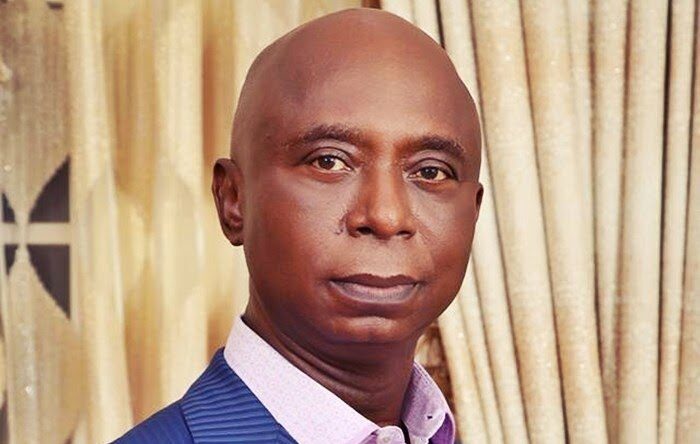By Chidi-Peters Okorie
Nigeria, the most populous black nation and home to 220 million people, has long captured the imagination of the world. Today, different thinkers, political and business leaders are preoccupied with a single question – how to help Nigeria’s economy grow so it can trade with the world on better terms?
The answer is simple: Nigeria needs to craft its own solutions to solve its problems. It starts with the promotion of a mindset of self-reliance. There’s no better way of expressing that self-sufficiency than creating own pro-development agenda that would lead to sustainable economic growth in all the 36 States of the country. If this could be achieved, Nigeria would prosper and the standard of living would rise.
For Nigerian Senator Ned Nwoko, avowed driver of the new economic prospects of the country in an interview in Abuja said that Nigerians lag economically and grapple with abject poverty, while the economy is highly susceptible to market fluctuations, making the country prone to instability, and strenuous to attracting foreign investment. “The country’s financial, societal, and political fabric remains fragile,” he told Time Africa.
And more unacceptable to him is that fact that Nigeria hold enormous foreign reserves and yet the majority of the country’s population leaves below poverty line. “We must end foreign reserves to develop own pro-development agenda, to move away from economic dependence.”
“Nigeria is politically independent but economically not. Nigerian government must end foreign reserves. Our foreign reserves serve the interest of few Nigeria while millions are without jobs and poverty impoverishing the people.”
The Senator advocated that Nigeria should repatriate its foreign reserves, and regulate commercial banks to grant low-interest-rate to Nigerians that are of productive age.
“For the Nigerian youth to be competitive at the global space, they must have access to finance, bank loan without hitches with as low as 2% interest rate.
Arguing that Nigeria can’t keep billions of dollar ias foreign reserves with citizens faced with humongous challenges including poverty, high unemployment, lack of decent jobs, barriers to entrepreneurship and inadequate promotion of youth-led businesses.
“Nigeria cannot hold Foreign Reserves for the fake of few business interests and yet the majority of the country’s population leaves in poverty and penury. We must end the foreign reserves to develop own pro-development agenda, to move away from economic dependence,”he said.
Africa is hard at work pursuing Agenda 2063, a development blueprint and master plan for transforming the continent into the global powerhouse of the future. But the chances of this plan to succeed could be enhanced if countries in the continent stop importing solutions from the outside and, instead, develop its own solutions for its own local challenges. This is the best way to positively change the trajectory of its economic development.
Apparently, Senator Nwoko has no different opinion to this, he believes strongly in Nigeria’s potential and he is part of the few driving forward a new economic order for Nigeria. For him, Nigeria must create an enabling environment for innovation through in-depth legislation that reflect new realities. “Sticking to the status quo does not foster change,” he said
“Nigeria is a country with predominantly youthful and enterprising population that needs jobs. If this human resource could be harnessed and groomed, Nigeria would be unstoppable. In fact, if this labour force could be skilled and exported around the world it could lead to greater inflows of diaspora finance that could boost our economies – human resource is a commodity of the future!
“We need to close all our borders against all foreign consumables. Sometimes ago, China closed its borders for a very long time and by the time they were reopened, the country had gained economic and production strength. The foreign factories or manufacturers interested in the Nigeria market should come site the plants here in Nigeria. If our borders are closed with a plan to reset the economy and gain high production, we will take the global market by storms,” he said, stating that it is strategic to encourage local production and consumption; if endured and embraced by all, the decision would pave a way out for our stagnant economy. As a developing economy, domesticating global best practices with considerations of unlikely variables will surely catalyse our growth and development.
He stated: “Strong imports mixed with weak exports means that Nigerian consumers are spending their money on foreign-made products more than foreign consumers are spending their money on Nigeria -made products.
“If our imports are mainly productive assets, such as machinery and equipment, this is even more favorable since productive assets will improve the economy’s productivity over the long run.”
There is increasing awareness that African youth have potential to drive economic growth. However, their earnings potential is stymied by a lack of financing tools to invest in their businesses and increase their incomes.
A strategic effort to enhance financial inclusion for youth can make economies more dynamic and strengthen economic resilience over the long term.
“Our destiny is tied to our country. If Nigeria thrives, we prosper. For this reason, I am committed to play my part in making sure that Nigeria grows and delivers on its potential,” he said.
